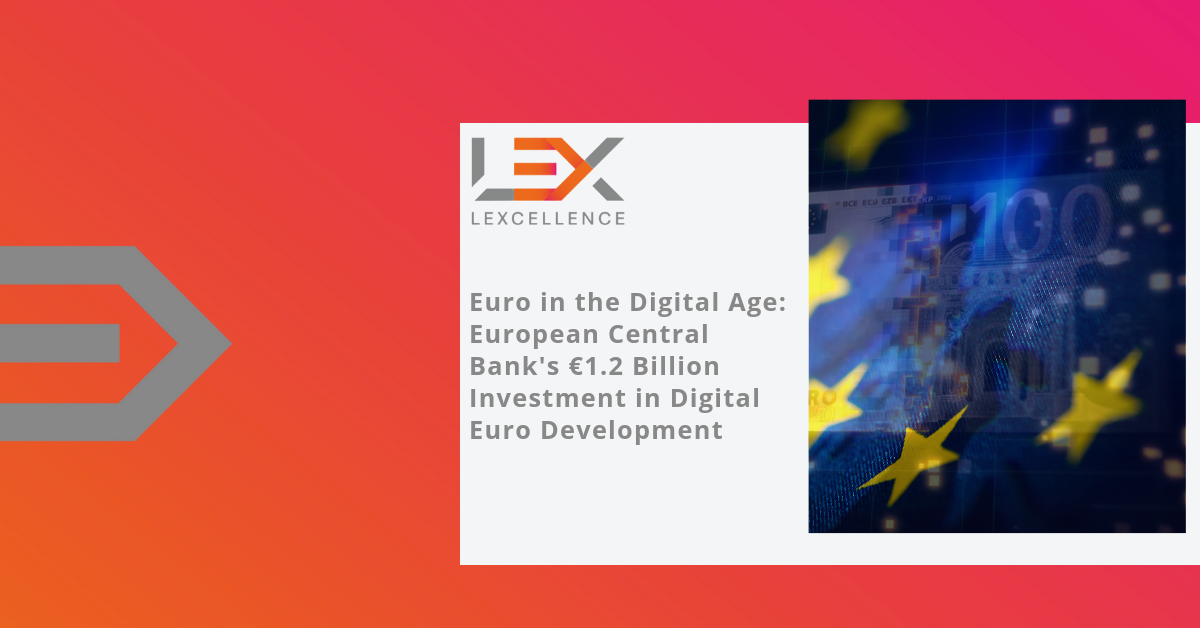Euro in the Digital Age: European Central Bank's €1.2 Billion Investment in Digital Euro Development

In a surprising move in 2024, the European Central Bank (ECB) has unveiled a €1.2 billion investment to accelerate the development of a digital version of the euro, aiming to reshape the financial landscape of the eurozone.
Key Initiatives:
The ECB has strategically divided the €1.2 billion fund across five distinct initiatives, highlighting the multifaceted nature of the digital euro project. The largest portion, amounting to €662 million, is dedicated to developing offline payment solutions. Following closely is a €237 million framework for risk and fraud management, emphasizing the importance of security in the digital currency realm.
The Need for Expertise:
Given the intricacies of the project, the ECB is actively seeking external partners with diverse expertise. These partners will play a pivotal role not only in building the digital euro app but also in developing offline payment solutions and managing critical aspects of risk and fraud. The call for applications opens doors for a spectrum of potential collaborators, ranging from established CBDC tech providers to global financial consultancies, big tech firms, and specialized software companies.
Controversial Role of Big Tech:
Big tech, previously contributed to designing the central bank digital currency prototype, sparking concerns among European Parliament members due to data protection issues. The ongoing selection process for the current development phase is open, and there's uncertainty about the continued involvement of big tech partners.
Privacy Concerns and Digital Euro Legitimacy:
Privacy concerns have been a persistent issue since the initiation of the digital euro project in 2021. Worries about potential surveillance and a lack of data protection have fueled skepticism among the public. To address these concerns, the ECB assures the public that personal data will not be accessible to them; instead, it will remain with commercial banks hosting the digital euro. Despite these reassurances, questions about the necessity of a digital euro persist, especially when considering the competition with other established digital payment methods.
European Financial Sovereignty:
Despite skepticism, the ECB and EU officials believe that a digital euro could enhance the financial sovereignty of the eurozone. The dominance of American payment giants like Visa and Mastercard in the market has triggered a desire to reclaim control and return it to European players. The digital euro project is seen as a strategic move to strengthen the eurozone's financial infrastructure and reduce dependence on external players.
Legislative Progress:
Policymakers are actively involved in laying the legal groundwork for the Central Bank Digital Currency (CBDC). Stefan Berger, a centre-right lawmaker in the European Parliament, leads the legislative efforts. No final decision on launching the digital euro will be made until the legislative process is complete. The ECB's cautious approach aligns with the commitment to ensuring regulatory frameworks are in place before moving forward.
Call for Applications:
To progress with the digital euro development, the ECB has issued calls for applications for various components and related services, including alias lookup, fraud and risk management, app and software development kit, offline services, and secure exchange of payment information. This extensive call aims to establish framework agreements with external providers, ensuring preparedness for digital euro development.
5 components of the Digital Euro:
- Alias Lookup Component
- Fraud and Risk Management Component
- App and Software Development Kit (SDK) Components
- Offline Services Component
- Secure Exchange of Payment Information Component
Conclusion and Key Highlights:
The ECB's €1.2 billion investment marks a significant step toward the potential realization of a digital euro. Key initiatives, the controversy around big tech involvement, and the call for diverse external partners showcase the complexity of the project. Privacy concerns persist, but the ECB actively addresses them, and legislative groundwork is underway. The key highlights include the allocation of funds for specific initiatives, the ongoing big tech controversy, and the cautious legislative approach, emphasizing the ECB's commitment to a well-thought-out and secure digital euro.





